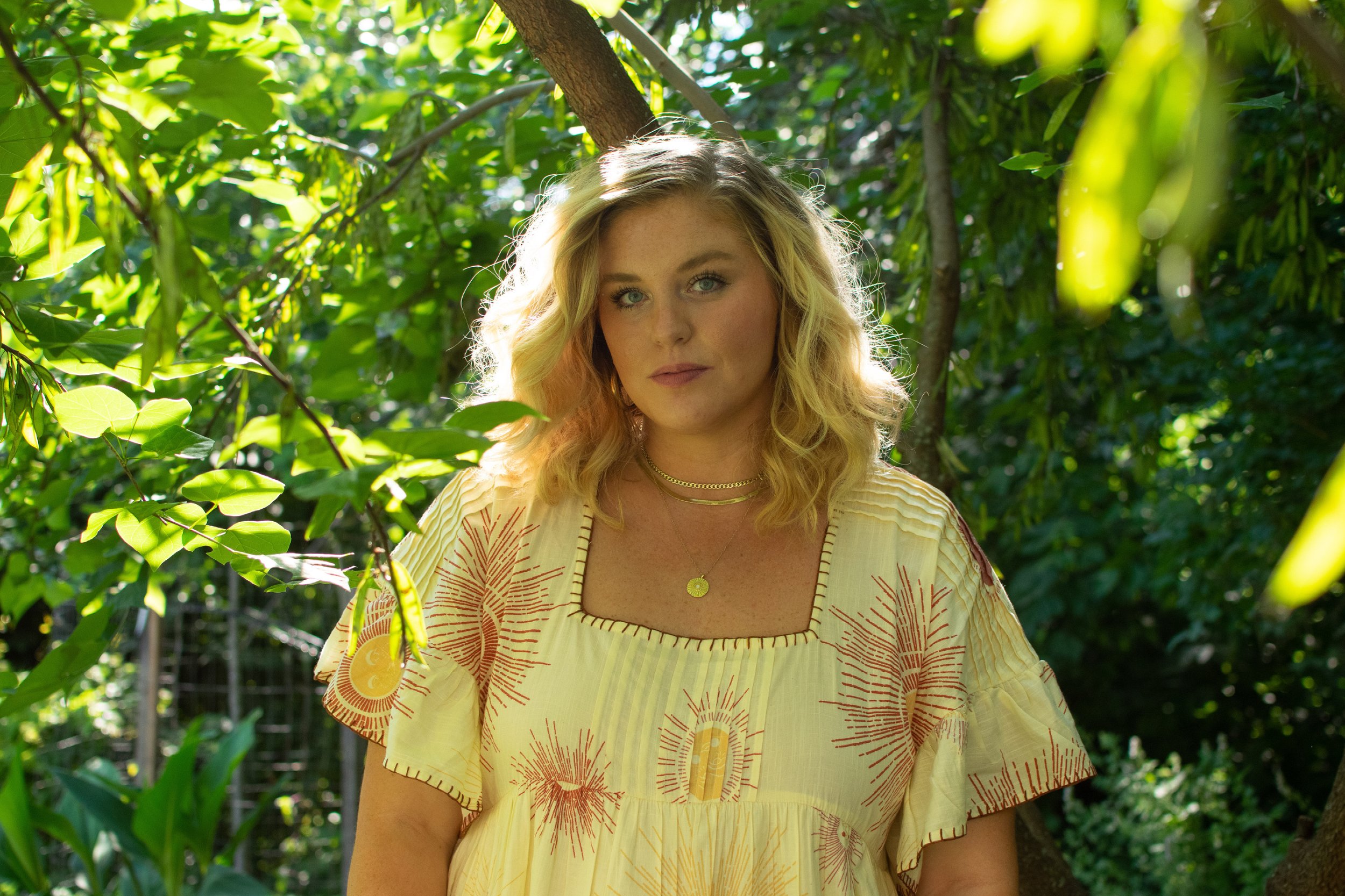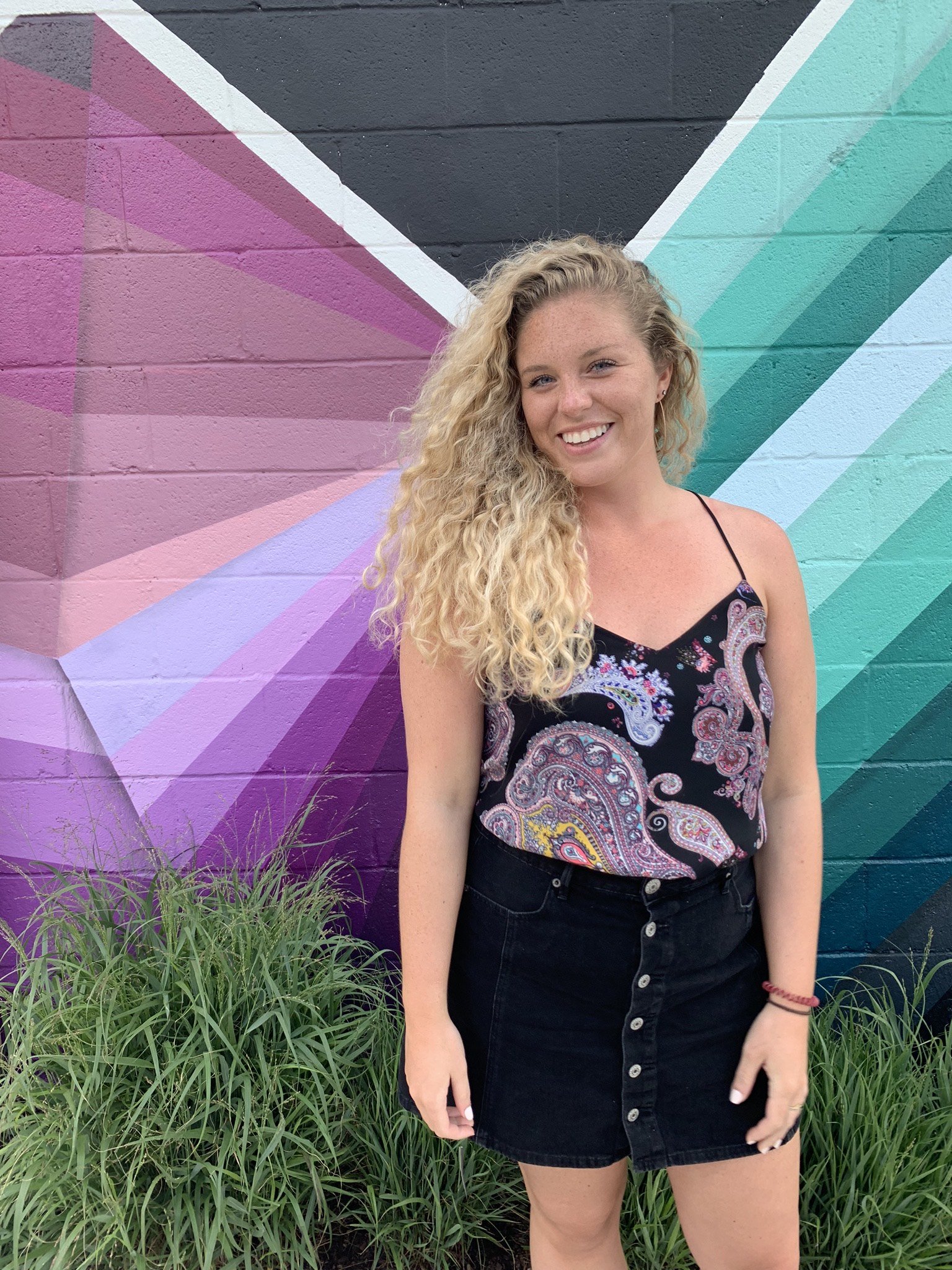Tips on how to heal and accept yourself with Julie Gallagher
I have been a strong believer that people come into your life at the time they are meant to. As I was going through my own journey of self-acceptance after having my second son I was interviewed by Julie for an article in WIRED magazine. We truly hit it off and I wanted to showcase her on my platform because I found her story so inspiring. After also being featured in her newsletter called weightless, I knew she had so much to offer my readers. Julie shares her journey with eating disorder recovery, diet culture, body image, and mental health. She writes personal essays, interviews professionals, and has featured guest essays.
In our interview, we discuss healing and accepting ourselves, we all need more of that! Continue reading to learn more.
NMFit: What does body acceptance mean to you? Did you always feel this?
Julie: When I think about the term “body acceptance,” what really comes to mind is “body neutrality.” And what I mean by that is: I simply have a body, there is no moral worth attached to its size, shape, ability or appearance. It’s just the vehicle I need to live my life and I feel indifferent about it. I nurture and take care of it by eating, drinking, sleeping, resting, and doing movements I enjoy. To me, accepting my body means not really thinking much about it at all in my day-to-day life. I know that’s an incredible privilege because I’m able-bodied and somewhat straight-sized, but that mindset shift is huge for me because I used to spend every waking minute scrutinizing and viscerally hating myself.
So, gosh no, I did not always accept my body. I spent the majority of my life at war with my body. I was constantly trying to make it smaller. And it started really young. I was 10 when I developed disordered eating behaviors. And it didn’t take long for it to morph into a full-blown eating disorder. But even as my weight fluctuated and my appearance changed through the years, I never felt any better. It was never enough. And now when I look at old pictures, I feel so sad because I can remember hating how I looked at the time, but now I wish that I could look like how I did in the photo. So it’s never actually been about what I looked like, it’s always been about my mind playing games with me and how I felt about myself on the inside.
And to be totally honest, I still struggle with body acceptance and body neutrality. My body has changed so much in my eating disorder recovery. And I know it’s supposed to, and it’s doing all the right things by changing and gaining weight, but it’s sometimes really hard to heal from a mental illness when often its biggest trigger is the sight of my own body, if that makes sense. But overall, it’s important to remember that body acceptance is not a destination or end goal. It’s a guiding light.
NMFit: What was the most vital shift that needed to happen in your life in order for you to start healing and accepting yourself?
Julie: To be totally honest, fear was my first real motivation for recovery. I saw all of the damage and harm my eating disorder was causing. I was afraid that if I kept going down that path, I’d get really, really sick. I was afraid that all of my successes and ambitions would go out the window. I was afraid I wouldn’t be physically able to keep up with all that I wanted to do with my life. And I was also afraid of the person I was when I was obedient to my eating disorder. I was depressed, anxious, secretive, rigid, obsessive, disorganized, emotionally volatile, the list could go on. None of it was sustainable, and none of it was reflective of who I really am and what my values really are.
But once I entered eating disorder treatment, I realized how good it felt to take care of myself. And that was the groundbreaking shift for me. It feels amazing to wake up and not feel every muscle in my body ache from exhaustion. It feels good to laugh with people I love and enjoy hobbies again. It feels so good to go for a walk with my best friend because I enjoy it, not because I need to get X amount of steps in for the day. In my eating disorder, I didn’t even know it was possible to feel that good. I had no idea that’s how most people felt on a day-to-day basis. And by taking care of my body, I have so much more physical and mental energy. And with that energy, I’m able to see that life is meant to be more than self-hatred and being as small as possible. My life was always going to be small if I spent all my time trying to evaporate.
NMFit: This process is continuous, what are some tips you have to offer on days that you don't feel so great and you might be slipping back into old thinking patterns?
Julie: When I’m having a not-so-great body image day, I make sure I’m wearing comfortable clothes. Clothes that I can move and breathe and eat freely in.
Unfollowing people on social media that make me feel bad about myself or talk about weight loss, diets, fitness, etc. have been a huge help in boosting my self-esteem. Instead, I’ve followed body neutral & anti-diet influencers and ED recovery professionals. And there’s a really powerful community there. Do an Instagram cleanse! It helps so much.
And on any bad day, I try really, really hard to stick to my four non-negotiables: eating 3 times during the day, drinking a bottle of water, taking my medicines, and getting sleep. Even if that doesn’t seem like a big accomplishment on paper, if I can do those four things on a bad day, I feel victorious. Because they were not always non-negotiables in my eating disorder. So I think it’s helpful to figure out what your self-care non-negotiables are, those things that are your baseline, and try to make sure you meet those on days where you find yourself having bad body image days or slipping back into eating disorder thoughts and behaviors. And those non-negotiables look different for everyone. It can be taking a walk, it can be making sure you take a shower or making one phone call to a loved one, it can be changing out of your pajamas, making your bed, or washing your face. Trying to make our self-care look and feel glamorous all the time kind of defeats the purpose. All we can ever do is our best, and sometimes our best is the bare minimum, and that’s perfectly okay.
Anything else you might want to add?
I think it’s just important to remember that none of this is meant to be perfect. We’re not going to wake up one day and magically feel better about our bodies. It’s hard work, and it’s going to be messy, and that’s okay.
Talking about my eating disorder, and opening up about my experiences and feelings helped me so much. Even if it’s just one person, having someone to confide in can go a long way.
You can subscribe to Julie’s newsletter here. You can also follow her on Twitter @_JulieGallagher or on Instagram @juliegalls.


